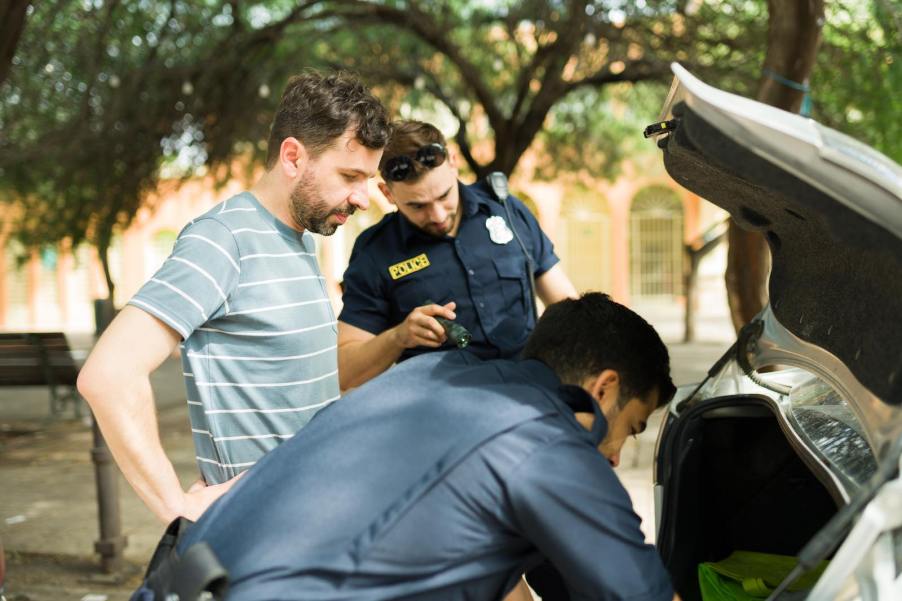
Police Can’t Use the ‘Warrantless’ Search Loophole if Your Car Isn’t Running
This may be news to you: The police don’t need a judge to issue a warrant before they search your car. They do need to have probable cause you are committing a crime, your car must be on public property such as a road, and they have to follow the rules of a warrant search such as stating what they are looking for. And there’s one other odd requirement: your car needs to be running.
Under most circumstances, the Fourth Amendment to the Constitution of the United States dictates police respect, “the right of the people to be secure in their persons, houses, papers, and effects, against unreasonable searches and seizures.” But tou are here is legal precedent for a “motor vehicle exception.” This means that police can often complete a “warrantless” search of your car if the above conditions are met.
Here’s an example: A police officer sees your car speeding and pulls you over. You are now a suspect in a traffic violation case and they are investigating whether you broke the law. In that investigation, they may notice your breath smells like alcohol or marijuana. Now they have probable cause for you driving under the influence and they can investigate that crime. To investigate that crime, they may need to search for evidence such as empty beer bottles or marijuana in your car.

So why in the world does your car need to be running for a “warrantless” search and how is that defined?
First the “why.” It may be related to that “on public property” caveat. Courts have been very clear that the “motor vehicle exception” does not apply to some old car abandoned in your back yard. Police would need a warrant to go onto your property and search said vehicle, the same as if it were a building. So the “apparently mobile” requirement keeps them from searching an abandoned car someone is using as a building.
So how in the world do they define running? What if it has a headlight out and isn’t technically road legal? What if it has a flat tire, but you could still drive it in an emergency? What if it ran out of gas?
Attorney Anthony Bandiero offers legal training to police officers. He counsels them that “apparently mobile” means the vehicle appears like it can currently drive, or a AAA roadside assistance specialist could get it up and running. So a vehicle can be “apparently mobile” even with a minor issue such as a flat tire, empty gas tank, or dead battery.
As a motor head I have so many questions. What if the car looks fine but is missing some obsolete part that AAA couldn’t fix? Bandiero adds that no court expects a police officer to have deep mechanical knowledge. Thus the “apparent” in “apparently mobile.” If the car looks like it can drive when they pull up behind it on a public roadway, they are legally covered in completing a warrantless search.
Finally, can you rapidly disable your car to prevent police from being able to complete a warrantless search? No, that wouldn’t work. If your car was apparently mobile when the officer pulled you over, and you’re on a public roadway, the motor vehicle exception to the Fourth Amendment holds. In fact, you’d probably get charged with obstructing the police officer if you tried to pull that one.
You can learn more about warrantless vehicle searches in Bandiero’s video embedded below:



